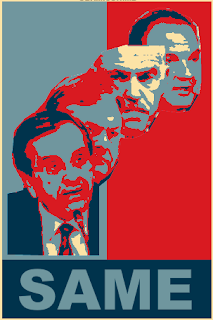(You can't dance without music)
There is no such thing as parthenogenesis in innovation. The creative process of humanity is an evolutionary process where the next is based on the previous. Content within the Internet is mixed and informational experiences are processed to spark further content. The Internet provides a platform that creates conditions for an accelerated creative process. Interest groups can network, topic-relevant information can be spread and topic-irrelevant data can mix to give new perspectives. Genres and disciplines mix in sciences, arts, technology and knowledge. Elements from one field can be trasfered to others and whatever is beneficial will be retained until at some point a whole new 'species' of content is created.
Obviously, fairness must be adressed and justice must be given to creators that should be protected from bad practices, unprofessionalism and theft. New creators with few resources are 'easy' victims to immoral exploiters that may have means and resources. However paying IP rights for a background music of your house party video or dancing video is probably the other extreme.
Yet it seems that the direction of the laws is trending to the protection and benefit of the resource holders who can still access, create and buy cheaply what has been created. New creation will be based on something previously existed and that will progressively become more and more, ownership of those already owning the previous creations. Generation of new material will be slowed down.
Based on the evolutionary nature of creativity a vicious circle is set where the more you own the more of what is new will be yours because it will be based on the previous.
Words like e.g.'press' are already being censored from the Internet in apps like 'adwords' based on trademark. Proportionally using words in a book or a thesis to make a point will automatically make the writers legally indebted or by omitting the words or examples will make their argument weak.
At the same time where patriot acts and terror laws that remove civil rights from individuals based on 'common benefit' or 'social well being' and 'emergency' are being passed, who is to dictate that innovation, education and social progress isn't 'social benefit' and 'common well being' in 'times of emergency ' more important than corporate copyright profits.
P. Siegkas
Cris Anderson how video and the web powers global innovation
(e.g. in relation to the article: the kids dancing in the video would have to pay rights for the music in there videos)
YouTube video on ACTA law


